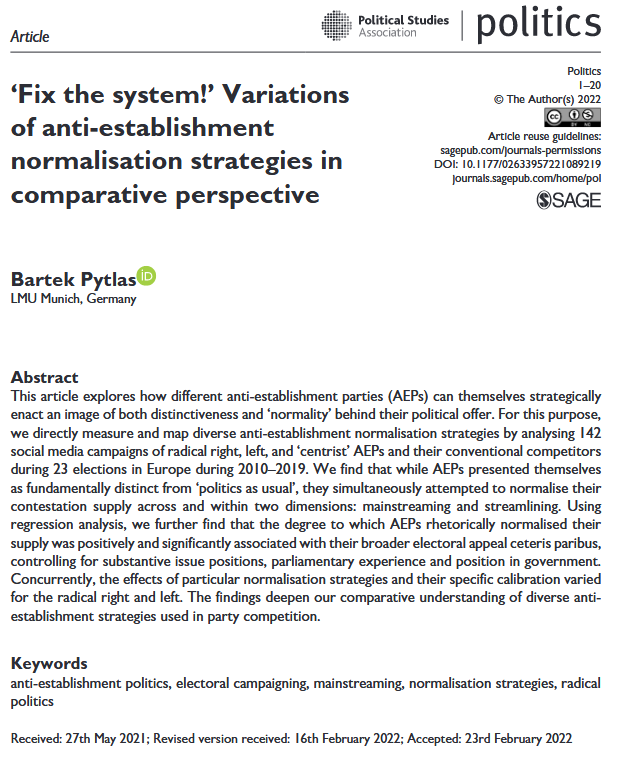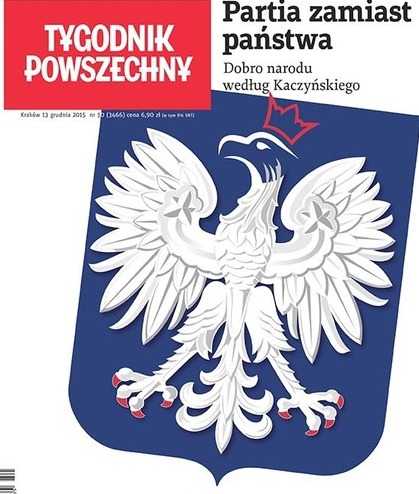
Award-winning researcher of the radical right | Autor 'Rechtsradikale Politik in Europa: Vom Rand in den Mainstream' (utb) | Worker kid in academia #FirstGen
How to get URL link on X (Twitter) App



 Populism has become a popular buzzword. Some approaches thus argued that we should drop the term altogether. I instead suggest that we should rather be mindful when applying it. So I don't argue that populism is irrelevant. I nonetheless show that it is not the whole story. 2/
Populism has become a popular buzzword. Some approaches thus argued that we should drop the term altogether. I instead suggest that we should rather be mindful when applying it. So I don't argue that populism is irrelevant. I nonetheless show that it is not the whole story. 2/ 


 I argue and show that anti-establishment parties (AEPs) can actively navigate an image of both distinctiveness and ‘normality’ behind their substantive positions, and profit from their rhetorical strategies in terms of increased electoral performance, ceteris paribus 2/
I argue and show that anti-establishment parties (AEPs) can actively navigate an image of both distinctiveness and ‘normality’ behind their substantive positions, and profit from their rhetorical strategies in terms of increased electoral performance, ceteris paribus 2/ 


 During its succesful electoral campaign of 2015, PiS strategically toned down its radicalism. The mask fell down immediately after the election. Since then, the party aggrandised political power to the detriment of democratic principles and constitutional norms. 2/10
During its succesful electoral campaign of 2015, PiS strategically toned down its radicalism. The mask fell down immediately after the election. Since then, the party aggrandised political power to the detriment of democratic principles and constitutional norms. 2/10 


https://twitter.com/PippaN15/status/10947350141080330242. As authors themselves note in Ch.7, the populism scale (anti-elitism and salience of corruption) doesn't reflect their definition (anti-elitism and invocations of vox populi). Why "populism" scale then? Especially as the operationalisation visibly impacts empirical validity?